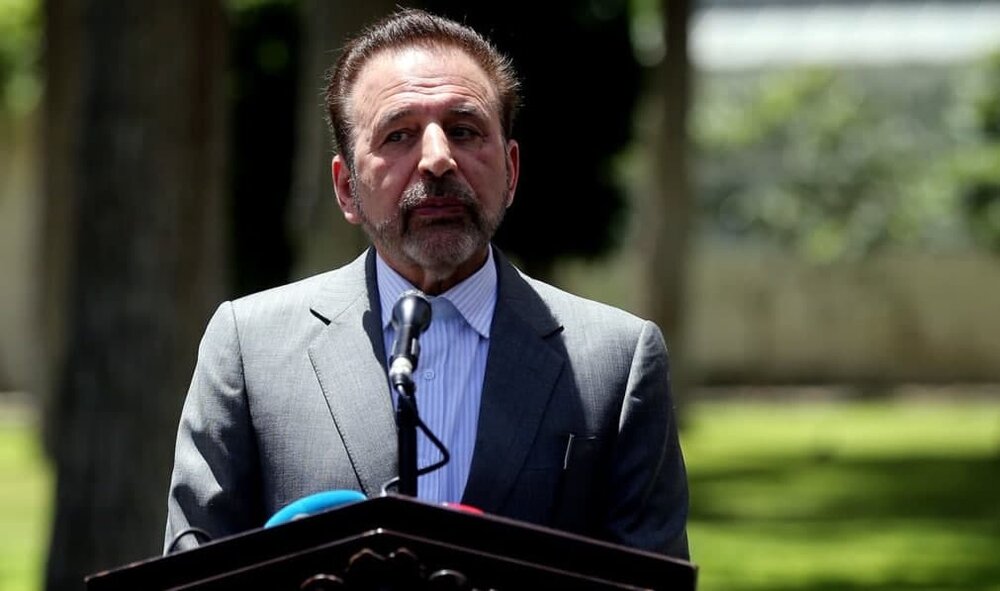
TEHRAN - Mahmoud Vaezi, the Iranian president’s chief of staff, has expressed hope that the nuclear talks underway in Vienna would result in a piece of good news but underlined that there would be no agreement until all Iranian demands are met.
Speaking at the sidelines of a cabinet meeting on Wednesday, Vaezi addressed the issue of the Vienna talks aimed to revive the 2015 nuclear deal, officially known as the Joint Comprehensive Plan of Action (JCPOA). He also addressed the impact of the Friday presidential election on the Vienna talks, underlining that the election should not cause any “harassment” for the talks.
“In most countries, foreign policy is separate from domestic and factional issues. Therefore, given the importance of the Vienna talks, the principles we adhere to are the framework outlined by the Leader of the Islamic Revolution,” Vaezi said, according to Iran’s state news agency IRNA.
“We are conducting these negotiations within the framework drawn by the Leader of the Islamic Revolution and approved by the establishment. So the negotiating team is moving in that direction.”
The president’s chief of staff pointed out that the Friday presidential election should not cause any harassment for the nuclear talks.
Vaezi added, “What has been agreed so far is most important economic issues that remain as an understanding, but the negotiating team has said that whatever we have agreed on will be ‘final’ when we meet all our demands. For this reason, the rest of the cases are being discussed. We hope to have good news on this in the coming weeks.”
He also pointed to a February agreement between Iran and the International Atomic Energy Agency (IAEA) allowing the latter to conduct the necessary inspections in Iran.
Iran and the IAEA reached in February a temporary deal allowing the Agency to continue its monitoring of Iran’s nuclear facilities for a period of three months, which expired a while ago. The deal was reached during a two-day visit by IAEA chief Rafael Grossi to Iran.
At that time, the IAEA and the Atomic Energy Organization of Iran (AEOI) issued a joint statement announcing the deal.
“The Atomic Energy Organization of Iran and the International Atomic Energy Agency recalled and reaffirmed the spirit of cooperation and enhanced mutual trust that led to the Joint Statement in Tehran on 26 August 2020, and the importance of continuing that cooperation and trust,” the February statement said. “The AEOI informed the IAEA that in order to comply with the act passed by the Parliament of the Islamic Republic of Iran called ‘Strategic Action to Cease Actions and Protect the Interest of Iranian Nation’ Iran will stop the implementation of the voluntary measures as envisaged in the JCPOA, as of 23 February 2021.”
The statement added, “In view of the above and in order for the Agency to continue its verification and monitoring activities, the AEOI and the IAEA agreed: 1. That Iran continues to implement fully and without limitation its Comprehensive Safeguards Agreement with the IAEA as before. 2. To a temporary bilateral technical understanding, compatible with the Law, whereby the IAEA will continue with its necessary verification and monitoring activities for up to 3 months (as per technical annex). 3. To keep the technical understanding under regular review to ensure it continues to achieve its purposes.”
In early June, Ali Akbar Salehi, head of the AEOI, sent a letter to the chief of the UN nuclear watchdog informing him that the February deal between Iran and the IAEA has expired but Iran decided to continue to store data related to monitoring activities.
Iran’s top security body also issued a statement on the issue announcing the expiration of the deal.
“Due to the ongoing technical negotiations on the settlement of safeguards issues between Iran and the International Atomic Energy Agency, which are taking place in parallel with the Vienna talks, the storage of surveillance cameras data will continue for one month from May 24 so that the necessary opportunity is provided for the progress and conclusion of the negotiations,” secretariat of Iran's Supreme National Security Council said in its statement. It also underlined the continued suspension of the voluntary implementation of the Additional Protocol to the Nuclear Non-Proliferation Treaty (NPT) in accordance with a parliamentary nuclear law obliging the Iranian government to restrict cooperation with the IAEA unless the West lifts sanctions on Iran.
Responding to a question on the February deal, Vaezi said making decisions regarding that deal is up to Iran's Supreme National Security Council.
But the Iranian official signaled that Iran may consider extending the deal if the Vienna negotiations get closer to meeting Iranian demands.
“If the other side shows the necessary flexibility and we get closer to achieving our demands, we can give more time to reach a good agreement, so in the remaining week the negotiations must take place until a decision is made,” Vaezi noted.

No comments:
Post a Comment